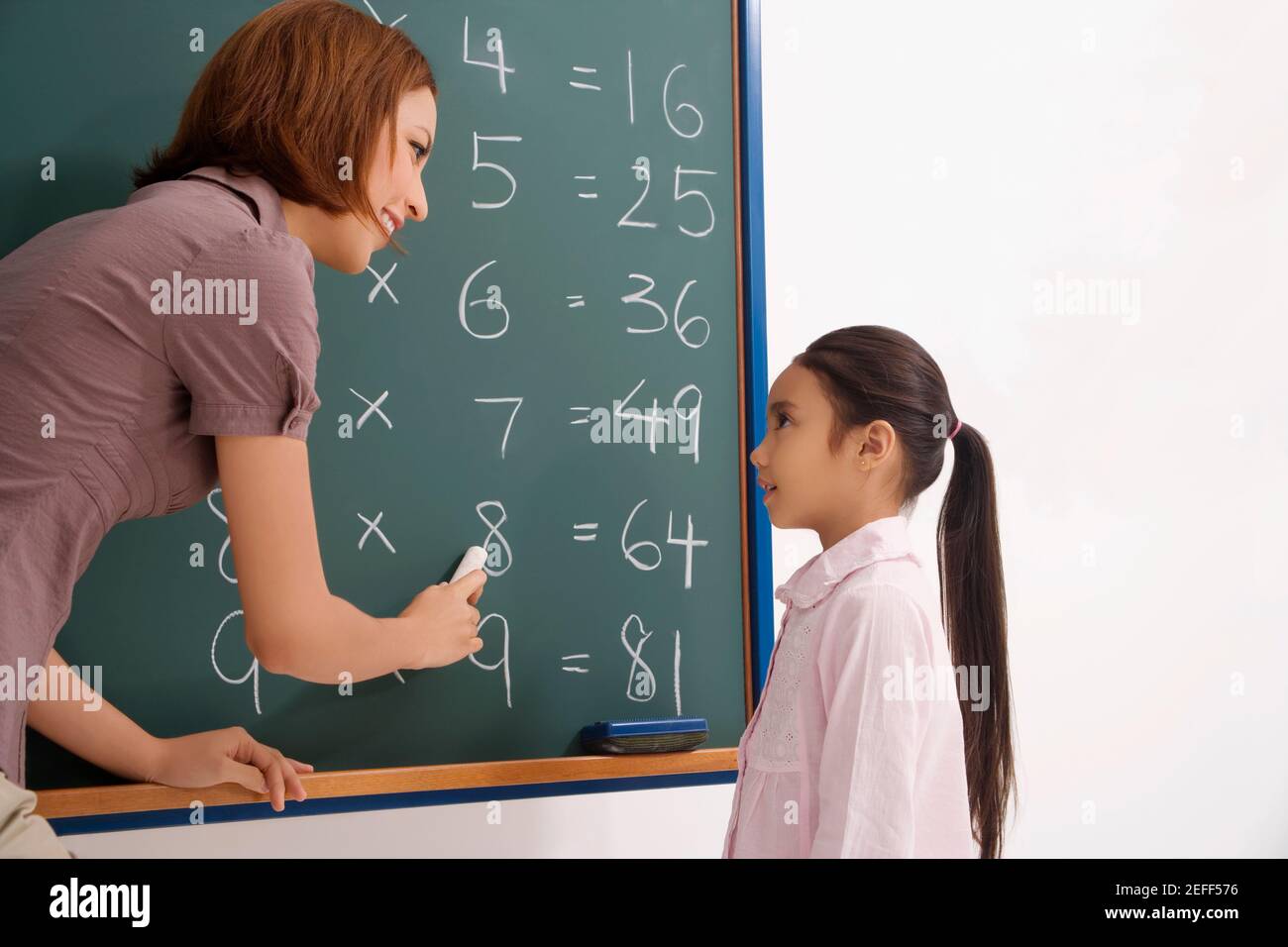Discover the Necessary Benefits of Comprehending Key Scientific Research for Young Learners
The relevance of key science education and learning for young students extends much beyond mere knowledge acquisition; it acts as a basic column in establishing crucial abilities such as essential reasoning, problem-solving, and imagination. Engaging with scientific principles via interactive and inquiry-based activities not only cultivates interest yet likewise prepares for durable, certain students. As we explore these benefits even more, it comes to be clear that the implications for future scholastic and personal growth are extensive. What certain approaches can educators employ to make best use of these benefits?
Enhancing Critical Thinking Abilities
Fostering important thinking abilities in young students is vital for their cognitive advancement and future scholastic success. Essential thinking allows kids to examine info, examine evidence, and make educated decisions, which are vital abilities in today's information-rich society. By involving in scientific query, young learners can improve these abilities as they discover principles with thinking, monitoring, and testing.
In primary science education and learning, teachers can facilitate critical thinking by urging students to ask concerns, develop theories, and carry out experiments. This hands-on approach permits youngsters to exercise analytic and establish logical reasoning skills. As an example, when students examine the residential or commercial properties of products or the principles of activity, they learn to analyze their findings critically and draw verdicts based on evidence.
Furthermore, conversations and collective projects can promote crucial thinking by giving opportunities for students to express their ideas, difficulty presumptions, and think about diverse point of views. By developing a supportive environment that values query and representation, instructors can support crucial believing skills that equip young students to come to be independent thinkers and lifelong learners. Inevitably, boosting these skills lays a robust foundation for their future scholastic ventures and personal development.
Fostering Inquisitiveness and Exploration

Main science education and learning offers an organized setting where young students can discover various sensations via hands-on experiments and observations. By permitting them to communicate with materials and participate in inquiry-based understanding, teachers develop possibilities for youngsters to create hypotheses, examine their concepts, and reason. Such experiences nurture a sense of wonder and enjoyment regarding scientific research.

Structure Confidence in Issue Resolving
Structure confidence in analytic is a crucial element of key science education and learning that equips young students to come close to challenges with strength and creative thinking - primary science tuition Singapore. They establish essential abilities in essential reasoning and analysis when kids are encouraged to engage with scientific concepts with hands-on activities and inquiry-based discovering. This procedure not only boosts their understanding of clinical concepts however likewise fosters a feeling of possession over their learning
To build confidence, instructors must create a supportive atmosphere where blunders are viewed as possibilities for development as opposed to failures. This encourages students to take threats and check out numerous remedies to troubles. By supplying scaffolding and guidance, teachers can help pupils browse official site intricate jobs, progressively raising their freedom in analytic scenarios.
In addition, collective discovering experiences, such as team tasks or experiments, can additionally improve pupils' self-confidence as they find out to express their thoughts and pay attention to others' point of views. These interactions nurture social abilities and reinforce the idea that analytical is often a collective undertaking. Ultimately, cultivating self-confidence in analytical prepares young learners for future scholastic challenges and outfits them with the devices needed for lifelong learning.
Urging Creative Thinking and Technology
In the realm of key scientific research education, urging creativity and advancement is essential for growing a vibrant knowing setting. By cultivating a society where young learners can explore ideas and experiment openly, instructors aid pupils establish important thinking skills and a passion for exploration. Imagination in scientific research motivates youngsters to ask questions, design hypotheses, and participate in hands-on tasks that boost their imagination.
Incorporating open-ended projects and inquiry-based learning right into the educational program allows students to share their unique point of views and remedies. For example, when tasked with fixing a trouble related to their atmosphere, trainees can conceptualize numerous approaches, resulting in creative results that display their originality. This not just strengthens their understanding of scientific ideas however additionally infuses a feeling of ownership over their discovering process.
Additionally, creative science education and learning nurtures cooperation amongst peers, as students typically share concepts and improve one another's understandings - primary science tuition Singapore. This joint spirit advertises not just development however likewise vital social abilities. Thus, by prioritizing creative thinking and technology in primary scientific research education and learning, we equip young learners to think critically, embrace obstacles, and visualize opportunities, laying a strong structure for lifelong learning and expedition
Planning For Future Discovering Difficulties
Young students' ability to browse future knowing obstacles rests on a solid structure in primary science education and learning. This browse around this site foundational understanding furnishes students with crucial believing abilities and an organized approach to analytical, important for tackling intricate issues in an ever-evolving world. Main scientific research cultivates inquiry-based discovering, urging students to ask inquiries, check out hypotheses, and involve in hands-on experiments.
As they establish these skills, learners become proficient at assessing data, acknowledging patterns, and drawing notified verdicts. Such proficiencies are vital not just in clinical fields yet likewise in innovation, engineering, and mathematics (STEM), where interdisciplinary knowledge is progressively critical.
In addition, main scientific research education grows a feeling of inquisitiveness and durability in young students, enabling them to watch difficulties as chances for development. As they experience and conquer barriers in their clinical expeditions, they develop self-confidence in their capability to adjust and introduce.
Inevitably, a strong foundation in main scientific research not just prepares young students for scholastic searches but likewise outfits them with the tools necessary for lifelong knowing and versatility in a rapidly transforming global landscape. By investing in main science education, we are buying the future capacity of our students.
Verdict
Comprehending main science is vital for young learners, as it fosters essential thinking, interest, and creative thinking. Engaging with clinical principles via hands-on experiments improves problem-solving capacities and develops resilience. This fundamental understanding not only gears up trainees to analyze information and identify patterns but additionally supports an inquiry-based way of thinking. Inevitably, the benefits of primary science education prepare children for future scholastic pursuits and impart long-lasting knowing habits important for growing in an ever-evolving world.
The relevance of key science education and learning for young learners prolongs far beyond plain expertise acquisition; it serves as a basic column in creating important skills such as critical thinking, analytical, and creativity. By producing an encouraging environment that values questions and reflection, instructors can nurture essential assuming skills that encourage young learners to become independent thinkers and lifelong learners. Hence, by prioritizing creative thinking and technology in primary scientific research education, we encourage young learners to assume seriously, embrace challenges, and picture possibilities, laying a solid structure for lifelong discovering my company and expedition.
Young students' ability to browse future learning obstacles hinges on a solid foundation in main scientific research education and learning.Understanding key science is vital for young students, as it fosters vital reasoning, curiosity, and creativity.